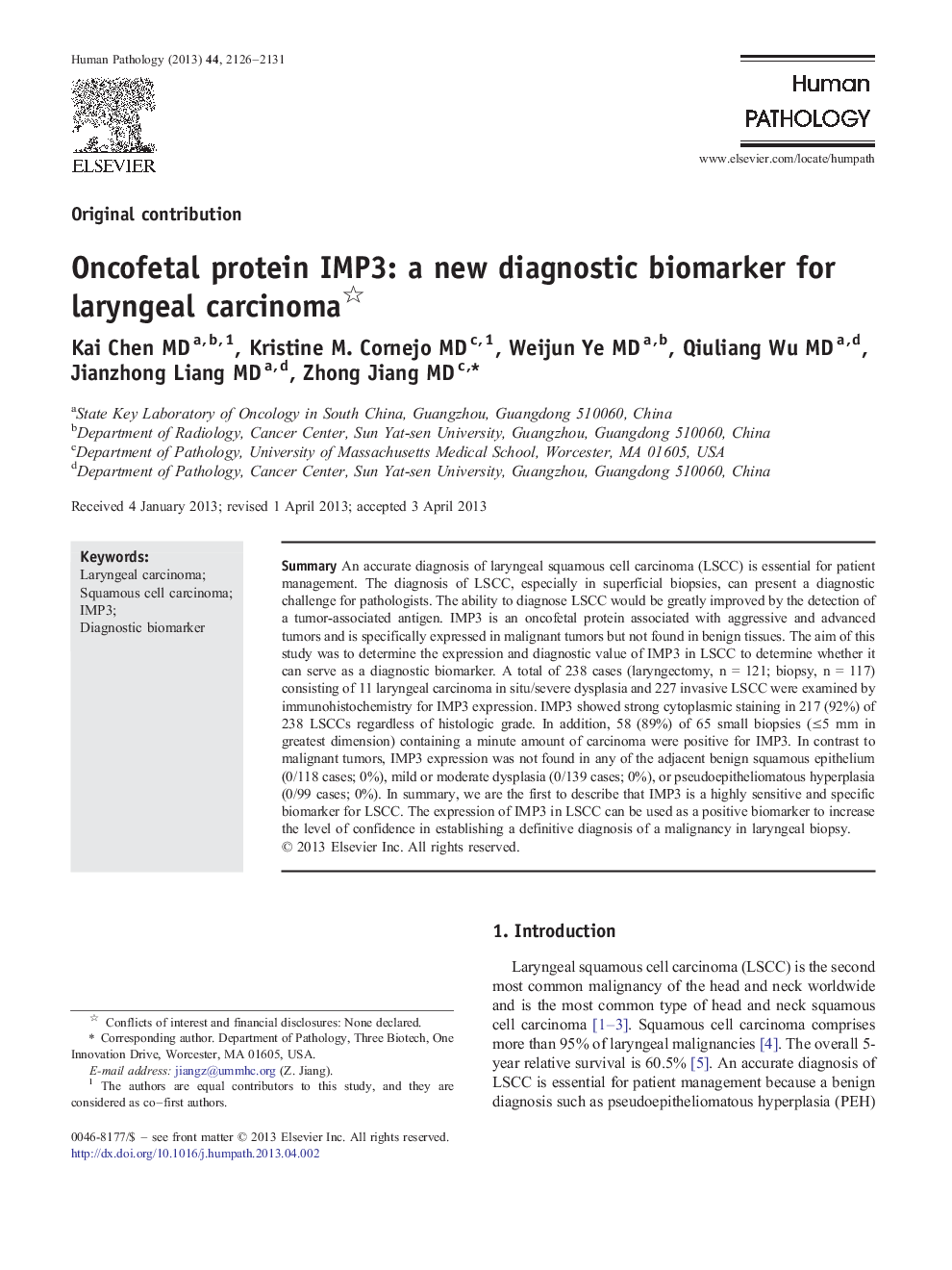| Article ID | Journal | Published Year | Pages | File Type |
|---|---|---|---|---|
| 4133203 | Human Pathology | 2013 | 6 Pages |
SummaryAn accurate diagnosis of laryngeal squamous cell carcinoma (LSCC) is essential for patient management. The diagnosis of LSCC, especially in superficial biopsies, can present a diagnostic challenge for pathologists. The ability to diagnose LSCC would be greatly improved by the detection of a tumor-associated antigen. IMP3 is an oncofetal protein associated with aggressive and advanced tumors and is specifically expressed in malignant tumors but not found in benign tissues. The aim of this study was to determine the expression and diagnostic value of IMP3 in LSCC to determine whether it can serve as a diagnostic biomarker. A total of 238 cases (laryngectomy, n = 121; biopsy, n = 117) consisting of 11 laryngeal carcinoma in situ/severe dysplasia and 227 invasive LSCC were examined by immunohistochemistry for IMP3 expression. IMP3 showed strong cytoplasmic staining in 217 (92%) of 238 LSCCs regardless of histologic grade. In addition, 58 (89%) of 65 small biopsies (≤5 mm in greatest dimension) containing a minute amount of carcinoma were positive for IMP3. In contrast to malignant tumors, IMP3 expression was not found in any of the adjacent benign squamous epithelium (0/118 cases; 0%), mild or moderate dysplasia (0/139 cases; 0%), or pseudoepitheliomatous hyperplasia (0/99 cases; 0%). In summary, we are the first to describe that IMP3 is a highly sensitive and specific biomarker for LSCC. The expression of IMP3 in LSCC can be used as a positive biomarker to increase the level of confidence in establishing a definitive diagnosis of a malignancy in laryngeal biopsy.
